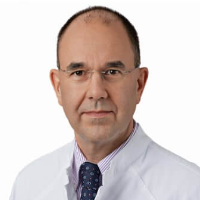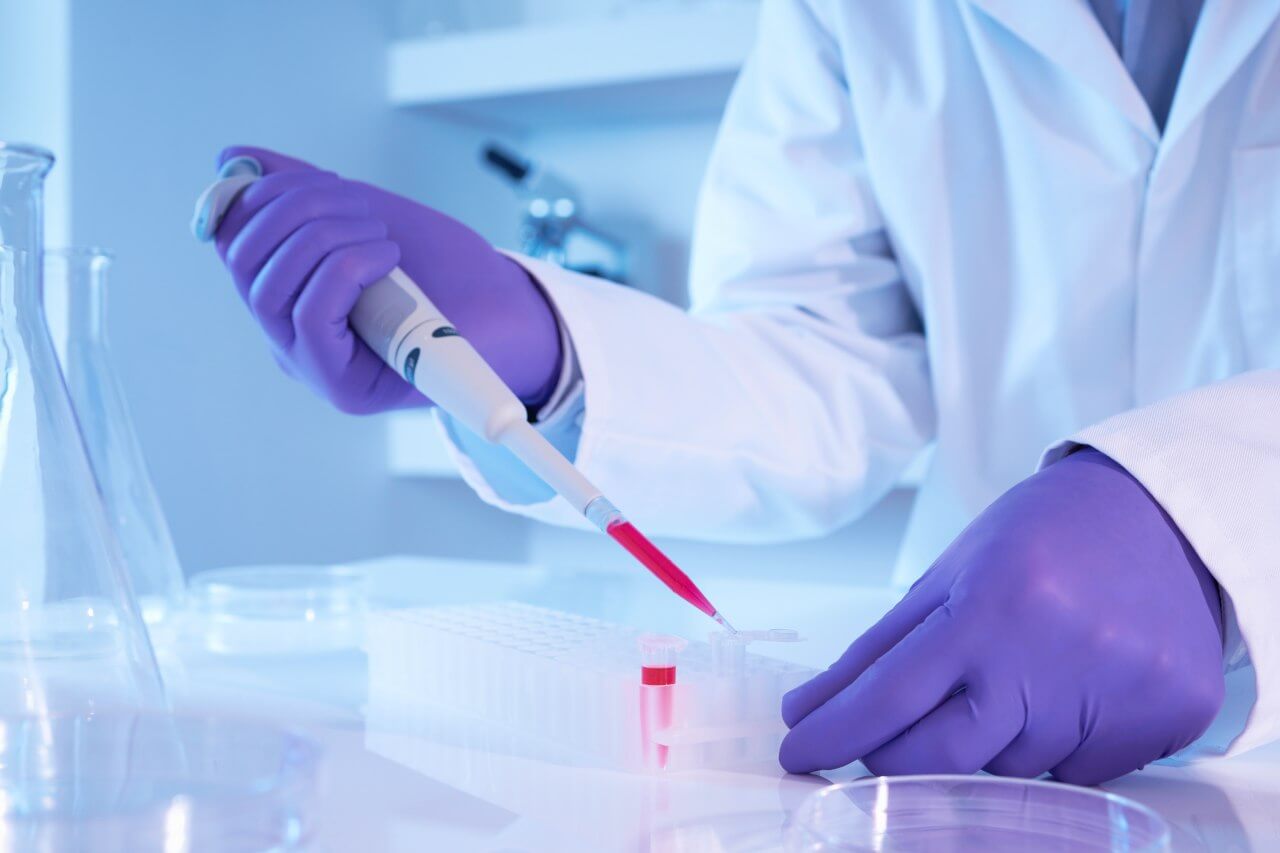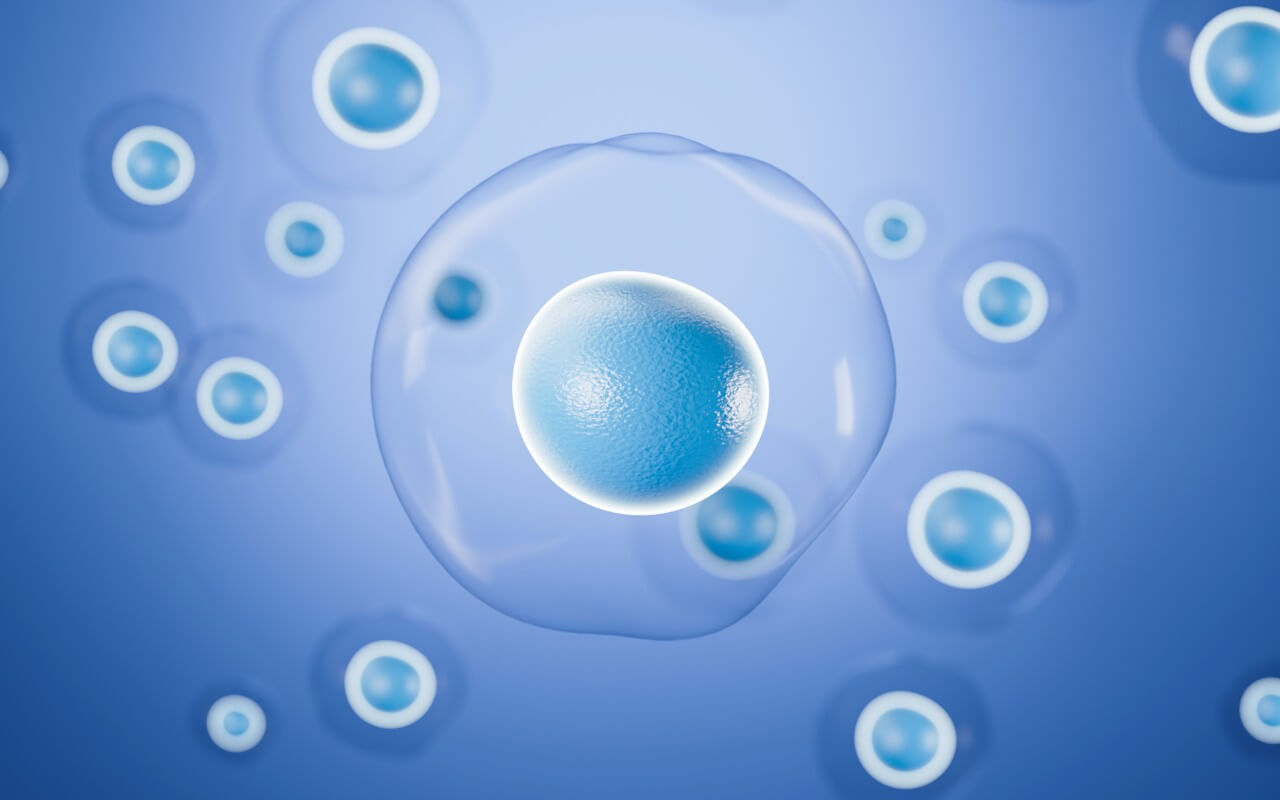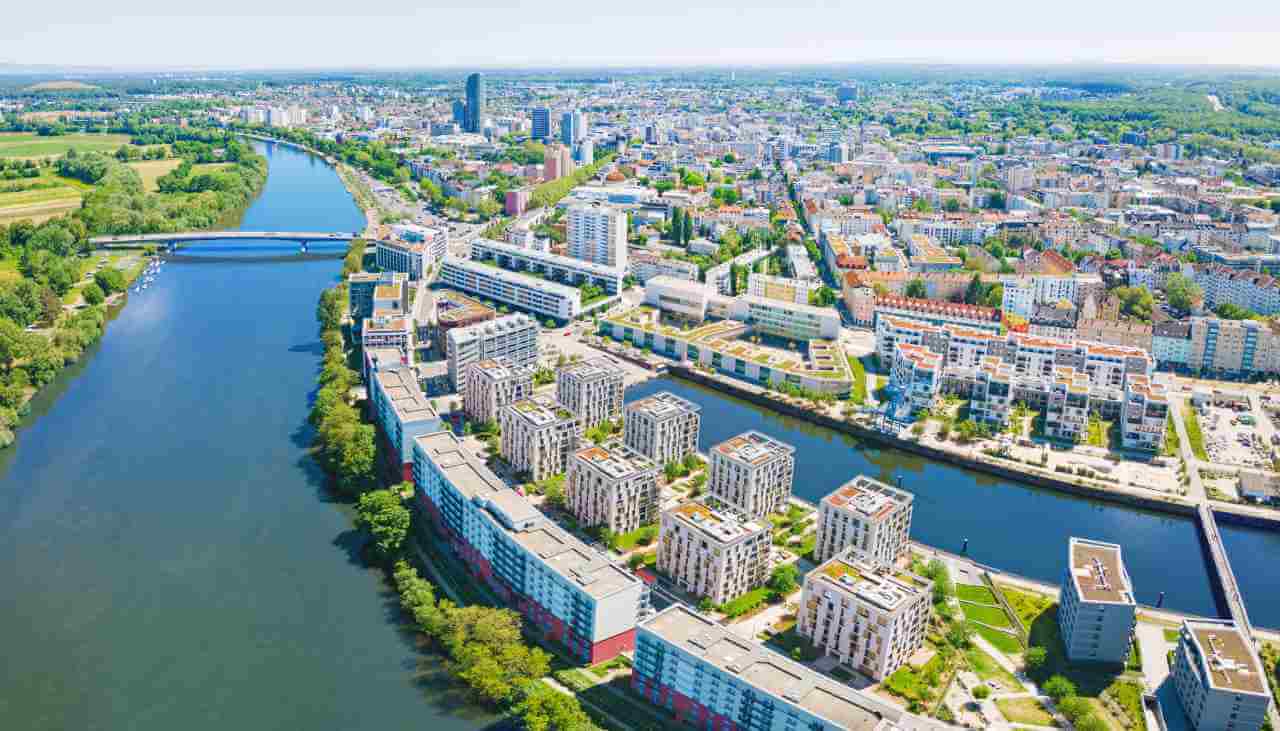
The program includes:
- Initial presentation in the clinic
- clinical history taking
- physical examination
- review of medical records
- laboratory tests:
- complete blood count
- general urine analysis
- biochemical analysis of blood
- tumor markers
- indicators of inflammation
- antibodies for HIV, hepatitis B, C, D
- indicators of blood coagulation
- stimulation therapy to increase the number of stem cells in the body
- stem cells collection with the use of intravenous anesthesia
- reimplantation of stem cells
- body fluid management
- patient observation after reimplantation
- symptomatic treatment
- control examinations
- the cost of essential medicines and materials
- nursing services
- explanation of future recommendations
How program is carried out
The essence of the method is the introduction of stem cells or substances secreted by them into the human body. For this, autologous (own) stem cells are most often used. First, the doctor must make sure that the patient does not have inflammatory processes or acute infectious diseases. These are contraindications for cell therapy. If there are no contraindications, then the patient receives a course of stem cell injections according to a certain scheme, which the doctor determines depending on the treatment goals.
During the first visit, the doctor conducts a clinical examination, goes through the results of previous diagnostic procedures and prescribes the necessary additional examinations. After a comprehensive assessment of your health condition, you will undergo stimulation therapy. This is injection of drugs that increase the number of active stem cells in the body.
After this, stem cells are harvested. Most often these are autologous stem cells of adipose tissue or blood. The obtained stem cells are processed with stimulating substances and cultivated in the laboratory. This allows to additionally increase their number and the effectiveness of the procedure.
The final stage of therapy is the introduction of stem cells using intravenous infusion or local injections, symptomatic therapy and subsequent medical follow-up.
The therapeutic effect develops in three phases:
- Immediately after the course of injections, you will feel a significant improvement in your health condition.
- In a few days, the body's defenses are activated, and its resources are used for the regeneration of damaged tissues. This may be accompanied by certain discomfort, i.e. fatigue, exacerbation of the symptoms of the main condition. Discomfort disappears in approximately 2 weeks from the start of cell therapy.
- A month later, the regeneration phase begins, which lasts up to 6 months. Your condition will gradually improve. The maximum effect of the therapy is usually observed in 4-6 months after the course of injections. Treatment results last for several years. The exact prognosis depends on the purpose of cell therapy, the clinical course of the disease, your age, individual characteristics of the organism, concomitant treatment and other factors.
Required documents
- Medical records
- Chest X-ray, MRI/CT scan (if available)
Service
You may also book:
 BookingHealth Price from:
BookingHealth Price from:
About the department
The Department of Regenerative Medicine at the ANOVA IRM Clinic for Regenerative Medicine offers all modern methods of stem cell therapy. The medical facility performs stem cell therapy based on the classical protocol, stem cell secretome (SCS) treatment, bone marrow concentrate (BMC) therapy, mesenchymal stem cell therapy, and PRP therapy that involves the injection of platelet-rich plasma. It should be noted that the medical facility has become a pioneer in Europe in the field of therapy with autologous mesenchymal stem cell secretome (SCS), the secretory products of stem cells. The department's medical team diagnoses and treats a wide range of diseases such as multiple sclerosis, rheumatoid arthritis, amyotrophic lateral sclerosis, Parkinson's disease, osteoarthrosis, knee injuries, spinal cord injuries, stroke, xerostomia, Lyme disease, urinary incontinence, and erectile dysfunction. The department also offers cell therapy for rejuvenation and hair loss treatment. The department has well-equipped diagnostic rooms and laboratories where biochemical, genetic, and imaging tests are performed. The specialists take time to study the patient's medical history and perform a comprehensive diagnosis, which helps to develop the most effective treatment regimen. The department's physicians work with innovative treatment methods that have passed all stages of clinical trials, proving their high efficiency and safety. The medical facility is the first cell therapy center in Europe to be certified according to German and European standards.
The Head Physician of the department is Prof. Dr. med. Michael Stehling. The specialist is one of the leading experts in regenerative medicine in the international medical arena. Prof. Stehling has practiced in leading hospitals in Germany, the USA, Switzerland, and the UK, where he gained invaluable experience in cell therapy, radiology, oncology, and other medical specialties. He is the founder and director of the ANOVA IRM Clinic for Regenerative Medicine and the Vitus Clinic for Innovative Cancer Treatment, which successfully use innovative treatment methods such as stem cell secretome therapy, bone marrow concentrate therapy, irreversible electroporation, Rezum therapy, and others.
The department specializes in modern stem cell treatments. A unique offer of the medical facility is the therapy with stem cell secretome (SCS), which are products of stem cell secretion: microvesicles, exosomes, proteins, cytokines, and hormone-like and immunomodulatory substances. The department was the first in Europe to receive official approval and certification for this innovative treatment. The department performs autologous mesenchymal stem cell secretome therapy. Specialists collect the patient's own stem cells, which are then cultured in laboratory conditions in order to increase their number, stimulate the production of regenerative and anti-inflammatory substances, and obtain their concentrate. The final stage of therapeutic manipulation is the injection of the obtained cellular components (secretome). The course of treatment can include up to 10 secretome injections with an interval of 6-8 weeks. If necessary, a more intensive course of treatment with a shorter interval between injections can be performed, while the treatment plan is developed individually for each patient. Stem cell secretome (SCS) therapy is used for chronic inflammatory diseases, multiple sclerosis, amyotrophic lateral sclerosis, Parkinson's disease, polyosteoarthritis, rheumatoid arthritis, spinal cord injuries, erectile dysfunction, and for rejuvenation. Numerous clinical trials of SCS cell therapy confirm that the effectiveness of stem cell secretome treatment is comparable to the results of using stem cells themselves for therapeutic purposes. In addition, SCS treatment causes virtually no side effects.
Another innovative treatment method is bone marrow cell concentrate (BMC) therapy. The therapeutic procedure is performed to eliminate pain associated with osteoarthrosis, accelerate the healing of meniscus, tendons, and ligaments, treat hip labral tears, sacroiliac joint dysfunction, rotator cuff tendinitis, tennis elbow, golfer's elbow, de Quervain's tenosynovitis, Achilles tendinitis, pathological lesions of the spine, and other diseases. To produce bone marrow cell concentrate, bone marrow is aspirated from the iliac crest with a special syringe. In this way, the doctor obtains blood stem cells (hematopoietic and mesenchymal) and bone marrow tissue. During the processing of the obtained biological material, blood serum and red blood cells are partially excluded from the BMC concentrate, which allows for a higher concentration of stem cells. The stem cell composition is the natural composition of bone marrow, concentrated approximately 6 times; the stem cells are not cultured or otherwise processed. Bone marrow concentrate (BMC) therapy takes only 1.5 hours. During this time, bone marrow is aspirated from the patient's iliac crest, the BMC concentrate is produced, its quality characteristics are assessed, and it is injected into the pathological area. The concentrate contains pluripotent cells that are capable of differentiating into various cell types. As a result, they are able to inhibit autoimmune reactions, thereby alleviating or stopping chronic inflammation, after which the phase of stimulating regeneration begins.
The department's therapeutic offerings are complemented by PRP therapy, which involves the injection of platelet-rich plasma. Platelet-rich plasma is a highly effective cellular product made from the patient's own blood. It contains growth factors that promote effective treatment of orthopedic diseases (knee, hip, and shoulder osteoarthrosis, cruciate ligament injuries, Achilles tendonitis, bone fractures, etc.), wound healing, and tissue rejuvenation and regeneration. The essence of the treatment is to sample the patient's blood, process it in the laboratory, and then inject the modified blood plasma into the pathological area. It takes only 30 minutes to collect the blood, process it, and evaluate its quality characteristics. In many cases, the department's specialists combine PRP therapy with stem cell therapy to enhance the therapeutic effect. The department is perhaps the only medical institution in Europe that performs this treatment.
The department offers modern highly effective methods of rejuvenation with stem cells, infusions of nutrients and vitamins, and senolytics, which are drugs that destroy senescent (aging) cells. When a patient comes to the department with the wish to eliminate the signs of aging, a comprehensive treatment plan is developed individually for him or her, including a preventive examination, a set of strength and aerobic exercises, normalization of the diet to replenish the levels of vitamins and microelements, normalization of the hormonal profile, a course of therapy with senolytics, a course of therapy with stem cells and stem cell secretome (SCS), and local application of systemic drugs to restore the skin and hair.
The department's main clinical activities include the following:
- Diagnostics and treatment of autoimmune diseases: multiple sclerosis and rheumatoid arthritis
- Diagnostics and treatment of neurodegenerative diseases: amyotrophic lateral sclerosis, multiple sclerosis, and Parkinson's disease
- Diagnostics and treatment of osteoarthrosis
- Diagnostics and treatment of knee injuries
- Diagnostics and treatment of spinal cord injuries
- Diagnostics and treatment of Lyme disease
- Diagnostics and treatment of stroke
- Diagnostics and treatment of xerostomia
- Diagnostics and treatment of erectile dysfunction (impotence)
- Diagnostics and treatment of urinary incontinence
- Diagnostics and treatment of other diseases
The department's range of therapeutic services includes the following:
- Stem cell therapy based on the classical protocol
- Stem cell secretome (SCS) therapy
- Bone marrow concentrate (BMC) therapy
- Mesenchymal stem cell therapy
- PRP therapy (injection of platelet-rich plasma), also in combination with stem cell therapy
- Stem cell secretome (SCS) therapy and PRP therapy for hair loss
- Comprehensive rejuvenation programs: stem cell therapy, nutrient and vitamin infusions, senolytics, and other procedures
- Nutrient and vitamin infusion therapy to improve immunity, general health, and strengthen the body and stimulate regeneration after injuries in professional athletes
- Other treatment methods
Curriculum vitae
Higher Education
- 04.1980 - 10.1986 Medical and physics studies (both subjects simultaneously, with the special permission of the university rector), Goethe University Frankfurt.
Internship
- 10.1985 - 01.1986 Intern, Department of Diagnostic Radiology, School of Medical Sciences, University of Manchester, Manchester Royal Infirmary, and Christie Hospital in Manchester, UK.
- 02.1986 - 05.1986 Intern, Department of Internal Medicine, North Manchester General Hospital, UK.
- 06.1986 - 10.1986 Intern, Department of Surgery, University Hospital Frankfurt am Main, Germany.
Qualifications
- 05.1987 Doctorate, Goethe University Frankfurt, Germany.
- 12.1989 PhD, University of Nottingham, UK.
- 01.2000 Habilitation and Venia legendi, University Hospital of Ludwig Maximilian University of Munich, Germany.
Academic Positions
- 06.1991 - 12.1993 Research Fellow, Department of Radiology, Beth Israel Deaconess Medical Center, Harvard Medical School in Boston, USA.
- 01.1994 - 01.1997 Radiologist and Head of the Section for MRI, Institute for Diagnostic Radiology, University Hospital of Ludwig Maximilian University of Munich, Germany.
- Since 12.2000 PD for Radiology, University Hospital of Ludwig Maximilian University of Munich, Germany.
- Since 09.2009 Associate Professor for Radiology, Boston University School of Medicine, USA.
Residency and Research Fellowship
- 11.1986 - 10.1989 Research Fellow (under the guidance of Peter Mansfield), Department of Physics, University of Nottingham, UK.
- 10.1989 - 10.1990 Resident, Department of Radiology, University Hospital Zurich, Switzerland.
- 10.1990 - 03.1991 Resident, Department of Cardiology, University Hospital Erlangen, Germany.
- 06.1991 - 12.1991 Resident, Department of Neurosurgery, University Hospital Erlangen, Germany.
- 01.1992 - 12.1993 Resident and Clinical Research Fellow, Department of Radiology, Beth Israel Deaconess Medical Center, Harvard Medical School in Boston, USA.
- 1994 Research Fellow, Armed Forces Institute of Pathology (AFIP), Walter Reed Army Medical Center in Washington, DC, USA.
Medical Practice
- 1997 - 2003 Founder, Partner, and CEO, Asmar, Higer, Stehling & Partners, Radiology & Nuclear Medicine, Frankfurt, Germany.
- Since 2003 Founder and Head of the Institute for Imaging Diagnostics, Private Radiology Clinic, Frankfurt, Germany.
- Since 2011 Founder and Head of the Vitus Clinic for Innovative Cancer Treatment (development and clinical application of advanced diagnostic methods and minimally invasive treatment of prostate cancer), Offenbach am Main, Germany.
- Since 2010 Founder and Owner of Intercare GmbH (international medical tourism, medical knowledge management, investment, and development of advanced medical technology companies), Lucerne, Switzerland.
- Since 2012 Shareholder and Scientific Advisor of Medcell Europe AG (development of advanced therapy medicines (ATMP) based on mesenchymal stem cells), Munchwilen, Switzerland.
- Since 2015 Co-founder of InterScience GmbH (development of medical devices for tumor treatment), Lucerne, Switzerland.
Licenses
- 1986 Admission to medical practice, Germany.
- 1987 Educational Commission for Foreign Medical Graduates, ECFMG, USA.
- 1988 Entry into the register of medical practitioners, England, UK.
- 1991 Temporary license for medical practice in Massachusetts, USA.
- 1994 Board medical certification, Massachusetts, USA.
- 1994 Permanent license for medical practice in Massachusetts, USA.
- 1997 Board certification in Radiology, Munich, Germany.
- 2012 Permanent license for medical practice in Switzerland.
Other Professional Activities
- 10.1990 - 12.1991 Consultant of Siemens Medical Systems, Erlangen, Germany. Subjects: research and development in magnetic resonance imaging and technical development of CT angiography.
- 1994 - 1997 Consultant, Dr. Rohde Private Radiology Clinic, Munich, Germany.
- 1997 Founder of ImRaD GmbH (MRI consulting), Frankfurt, Germany.
- 1997 - 1998 Consultant, Dr. Meinhardt Private Radiology Clinic, Euskirchen, Germany.
- 1997 Co-founder of Ibn Sina Medical Consulting GmbH, Frankfurt, Germany.
Scholarships and Grants
- 1986 - 1987 Bayer AG Carl Duisberg scholarship for exceptionally gifted physics students, Leverkusen, Germany.
- 1987 - 1989 Postdoctoral scholarship from the German Research Foundation, Bonn, Germany.
- 1994 - 1997 Numerous research grants from the German Research Foundation for research in coronary MRI and CT angiography, Bonn, Germany.
- 1996 Major research grant (jointly with other specialists) from the German Cancer Aid (Deutsche Krebshilfe) for the development and implementation of non-invasive temperature measurement using MRI during hyperthermia for malignant tumors.
Photo of the doctor: (c) ANOVA IRM Institute for Regenerative Medicine
About hospital
The ANOVA IRM Clinic for Regenerative Medicine is an advanced medical facility specializing in regenerative, cellular, and translational medicine. The clinic is unique not only in Germany but also in the world and was the first center in Europe to perform stem cell therapy with the corresponding certification of the German and European standards. In addition, the clinic has become a pioneer in the European medical arena in the treatment with stem cell secretome.
The medical complex has an amazing success in the field of stem cell therapy for the treatment of many diseases, including multiple sclerosis, rheumatoid arthritis, amyotrophic lateral sclerosis, Parkinson's disease, osteoarthrosis, knee injuries, spinal cord injuries, stroke, dry mouth syndrome, Lyme disease, urinary incontinence, and erectile dysfunction. The clinic admits patients from various countries of the world for treatment, and is deservedly proud of its extensive experience in serving international patients. The healthcare facility is focused on providing the highest level of personalized medical care.
The ANOVA IRM Clinic for Regenerative Medicine specializes in standard stem cell therapy, stem cell secretome (SCS) therapy, bone marrow concentrate (BMC) therapy, mesenchymal stem cell therapy, and PRP therapy – injections of platelet-rich plasma. In addition, the clinic provides anti-aging stem cell therapy and cell therapy for hair loss. A powerful diagnostic base with a wide range of biochemical, genetic, and imaging tests is available here, allowing physicians to comprehensively assess the patient's condition and select the optimal treatment method for them. If necessary, a "second opinion" service may be provided.
The medical team of the ANOVA IRM Clinic for Regenerative Medicine deserves special attention. It consists of leading doctors and scientists with a worldwide reputation who work hand in hand to provide effective medical care for patients with severe diseases. The head physician and founder of the medical complex is Prof. Dr. med. Michael Stehling. The specialist has current medical licenses to practice in Germany, Switzerland, and the USA. He has worked in the best medical centers of Germany, the USA, Switzerland, and Great Britain. He has unique clinical experience in the field of regenerative medicine and radiology. Prof. Stehling is one of the most competent experts in the field of application of such innovative treatment methods as stem cell secretome therapy and bone marrow concentrate therapy.
The ANOVA IRM Clinic for Regenerative Medicine has all the necessary resources and comfortable infrastructure for high-quality patient care. The specialists of the medical facility approach the patient's problem with maximum responsibility, whether it is a serious illness, the desire to get rid of the signs of aging, or general health improvement through cell therapy.
Photo: (с) depositphotos
Accommodation in hospital
Hotel
You may stay at the hotel of your choice during the outpatient program. Our managers will support you for selecting the best option.




